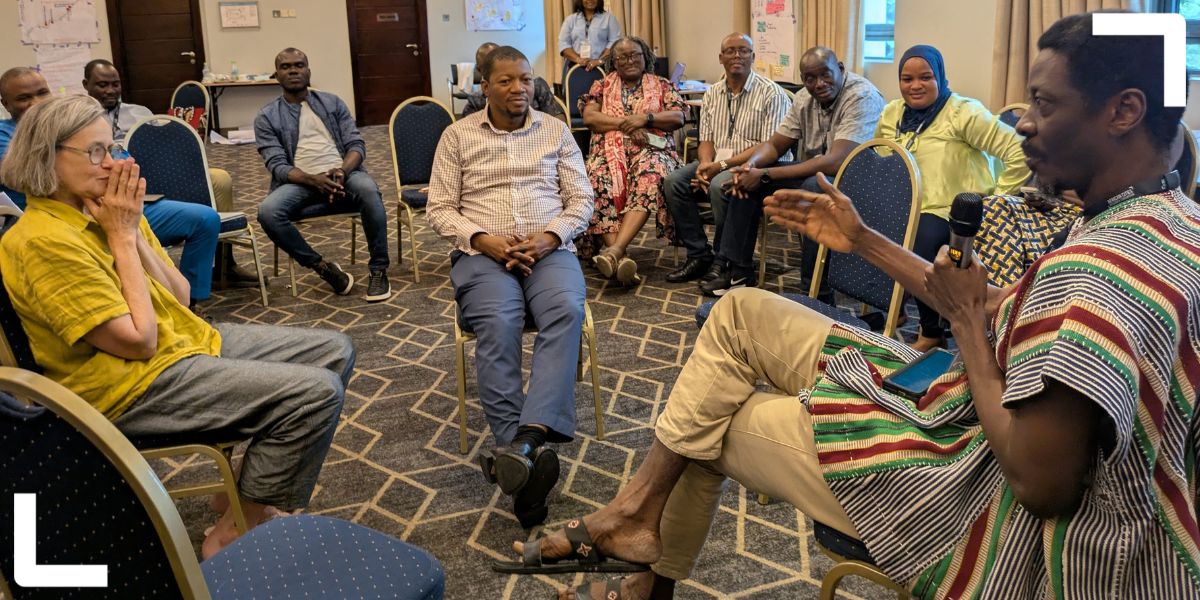By Chris Jordan
As a consortium, we’re trying to learn what catalyses inclusive urban reform across African cities. But what does that really mean in practice, as well as in theory?
This was the overarching question for our recent meeting in Lagos between our senior management team, our city managers, urban, politics and community researchers from across the consortium. We wanted to better understand how is learning happening across individual action research projects, at the city scale – and beyond. How are we capturing and communicating the insights and broader implications that come out of this learning?
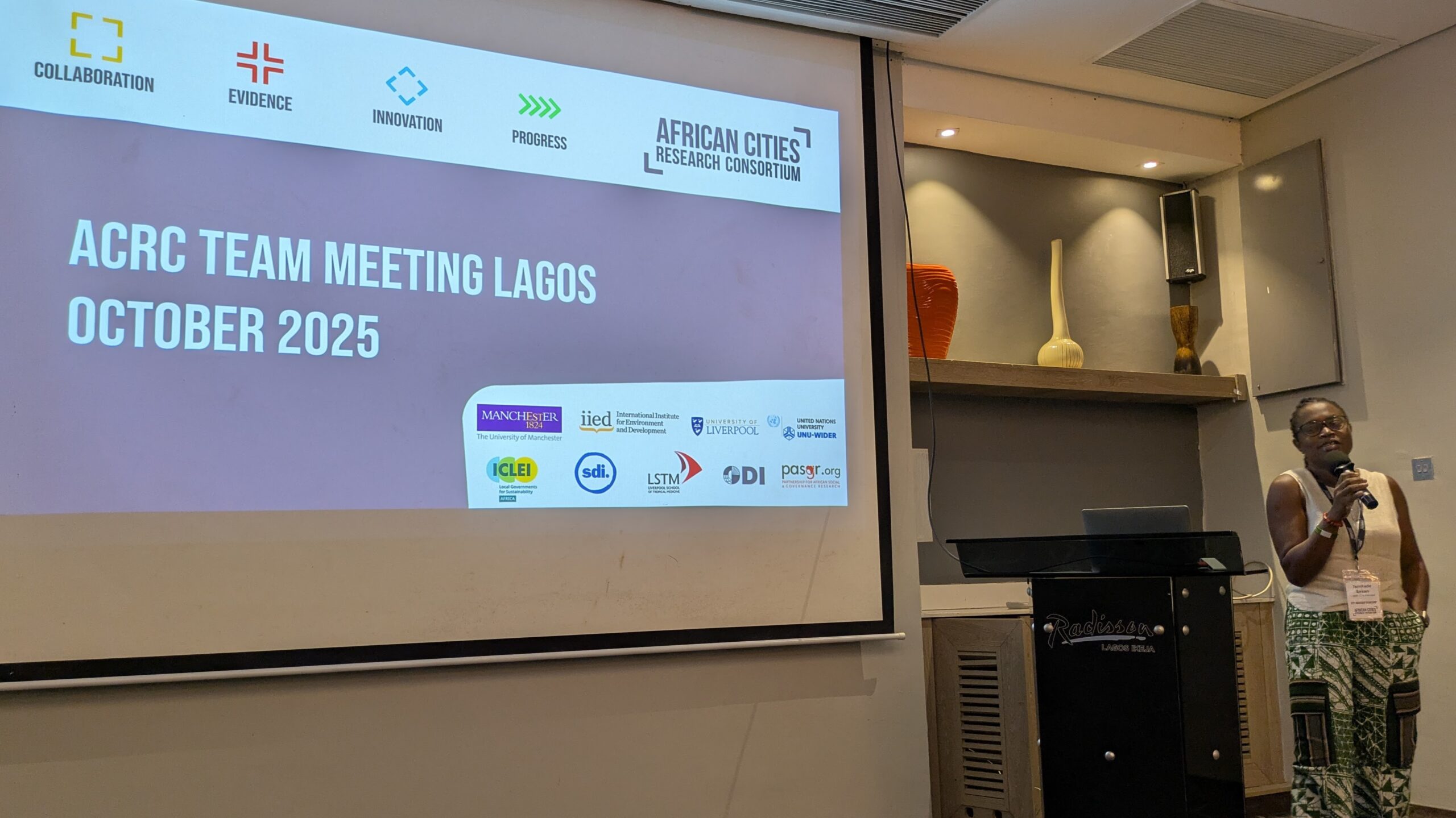
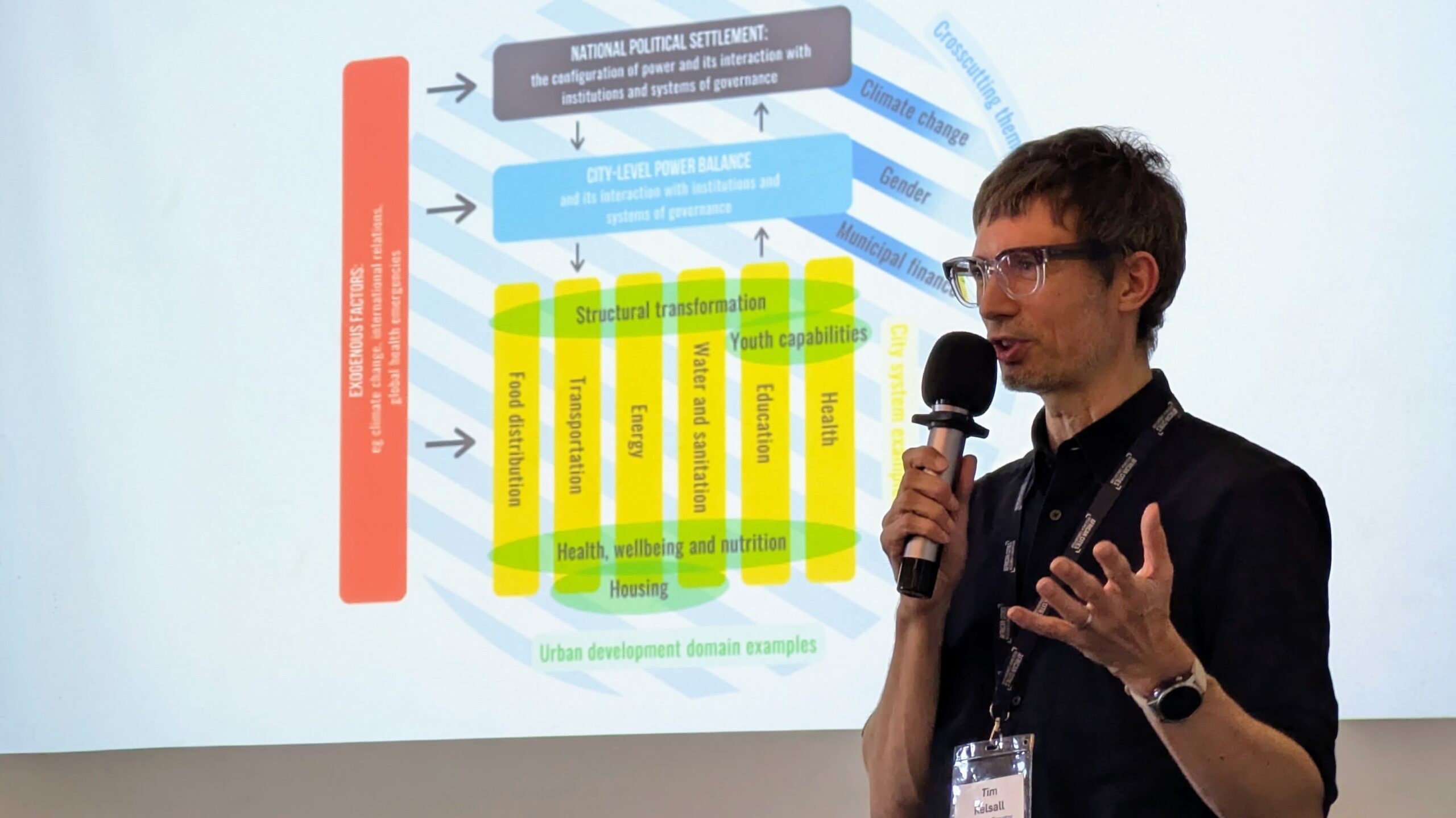
We started out with our political settlements research director Tim Kelsall reminding people of ACRC’s conceptual framework and theory of change. City teams set to work drawing out their learning journeys over the last couple of years, charting key milestones, challenges and successes. We rounded off by move from empirical learning to theoretical learning – interrogating what are these journeys telling us about our conceptual framework, and the other way around.
Thunderstruck
As the rain poured and thunder rolled, the second day of our workshop began with a deep dive into the learning processes, challenges and insights from the Lagos team.
Despite the challenges of coordination and communication, there was consensus that the experiences and perspectives of the wider team have been invaluable in creating real momentum – and it also provides a vital platform for learning. Insights have emerged via internal discussion, listening to communities, dialogue with city officials, through data collection, interdisciplinary approaches – and by doing the actions research projects.
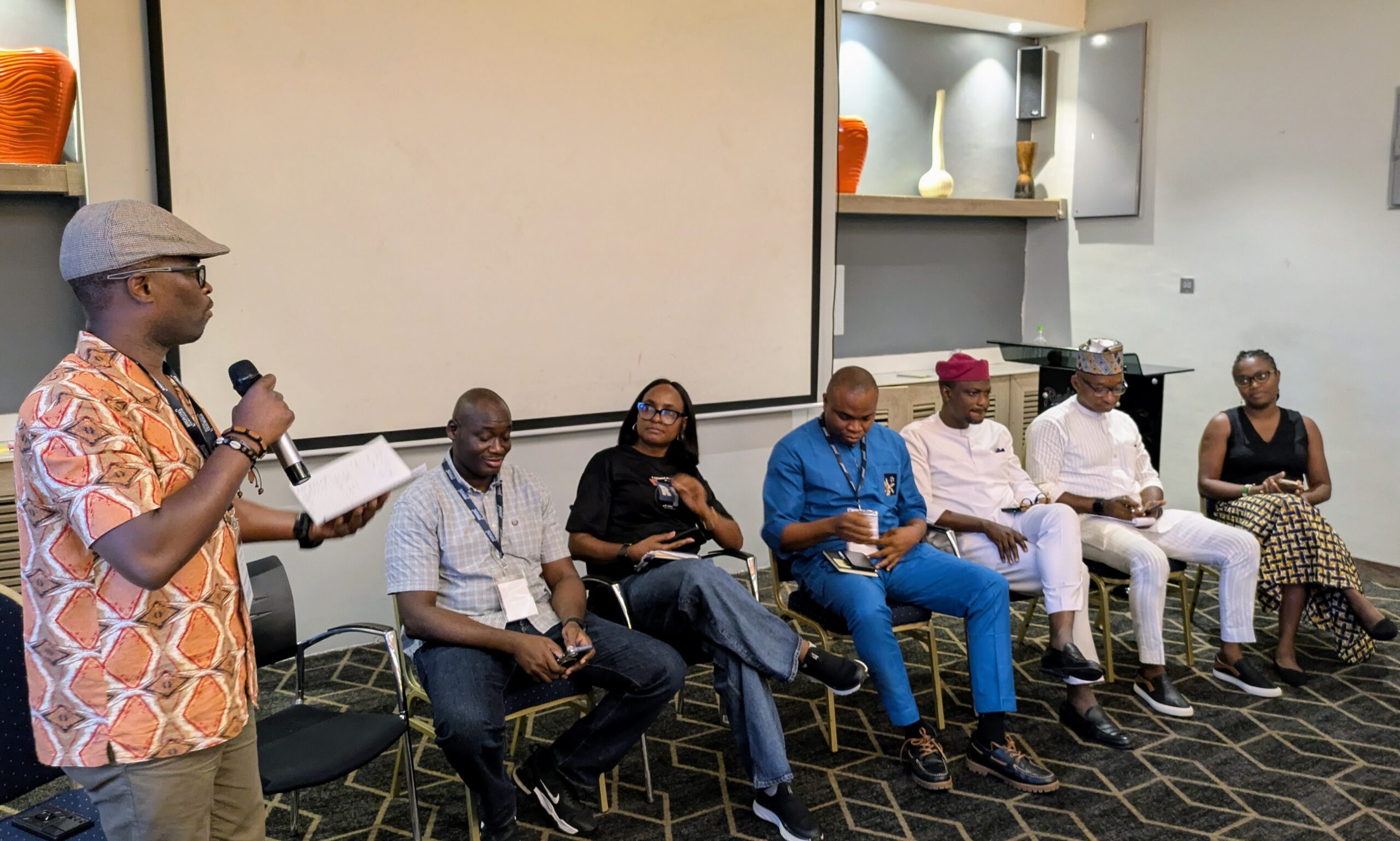
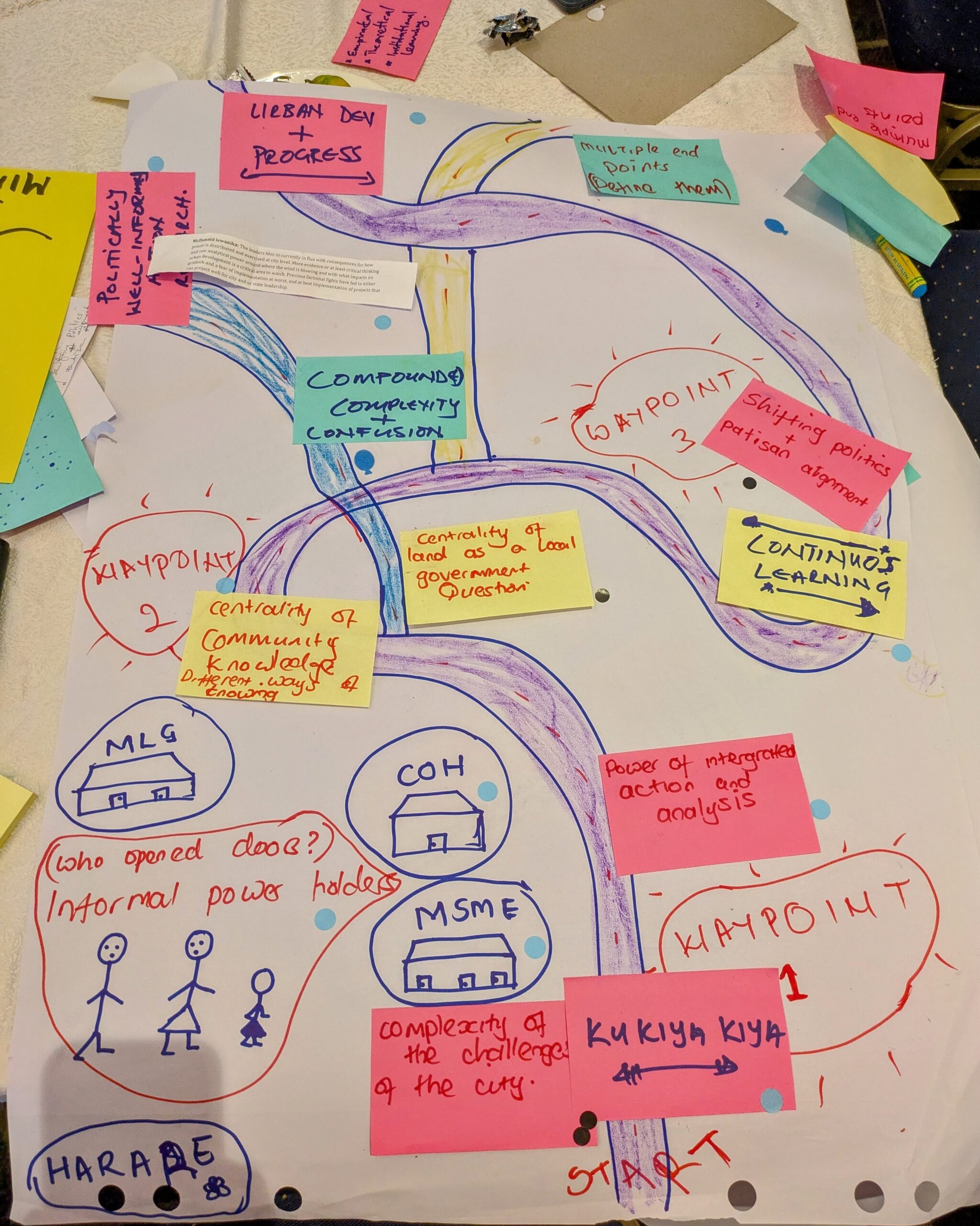
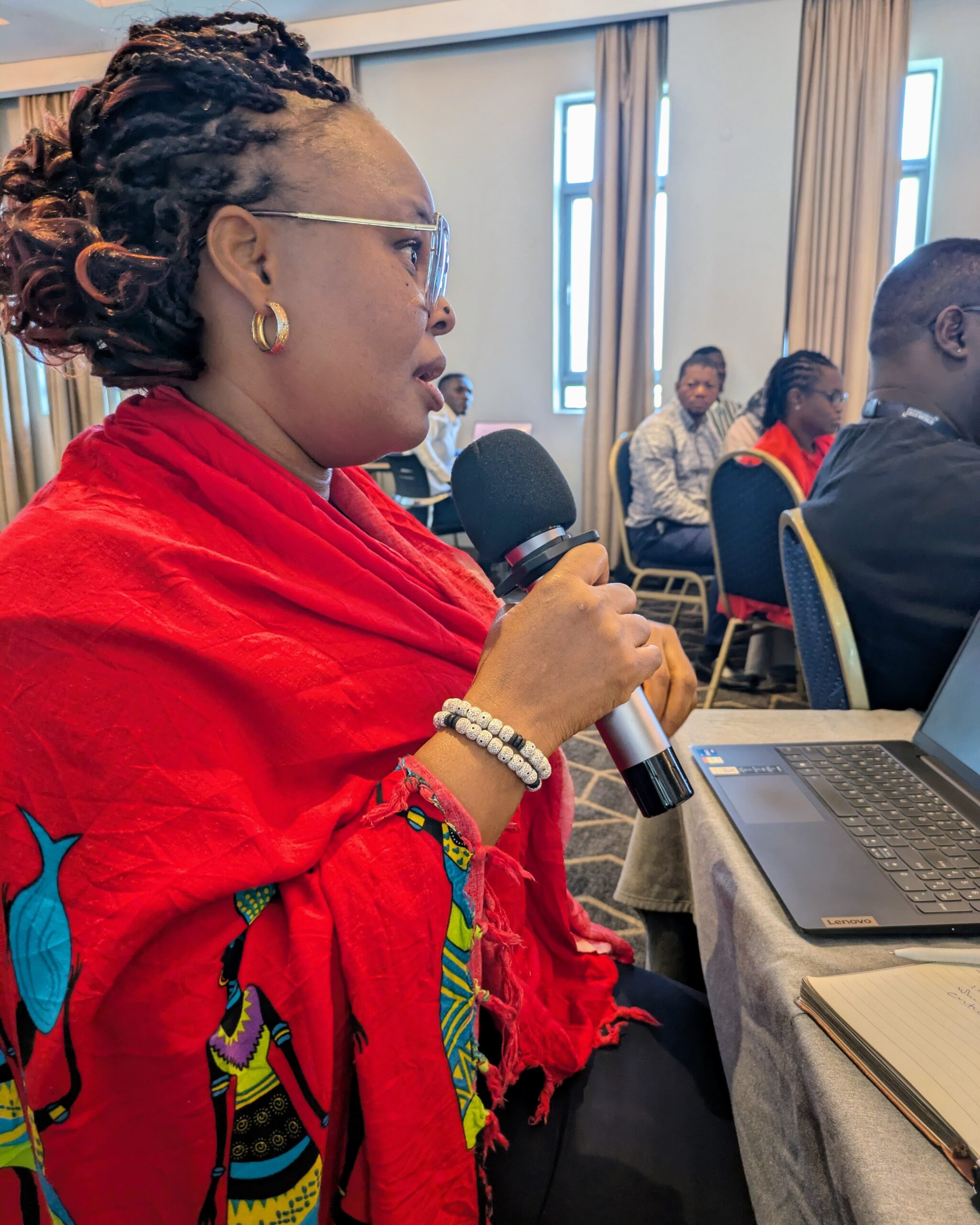
Picking up from the city learning journey’s yesterday, we interrogated the empirical knowledge that has been generated and how it sheds light on ACRC’s theory of change – across mobilised communities, elite commitment, state capacity and reform coalitions. The rich experiences from Accra, Harare, Kampala, Lagos and Nairobi are already starting to paint a vivid picture of how best to catalyse inclusive and sustainable change in Africa’s growing cities.
We spent much of the afternoon in a ‘fishbowl’, discussing how these insights were being captured – and how they were shared between action research projects, city managers and urban development researchers. A fascinating dialogue flowed, highlighting the tensions between planned and emergent learning, between implementing action research project and understanding how the projects contribute to catalysing change – and by the desire to get more detail, with the challenge of making sense of complexity and nuance.
Despite these knotty issues, Diana Mitlin’s initial anxiety that learning wasn’t being fully captured proved not to be the case. The main challenge we have is making sense of the huge amount of information that we’re already generating – but recent reflections from the Nairobi team may point the way.
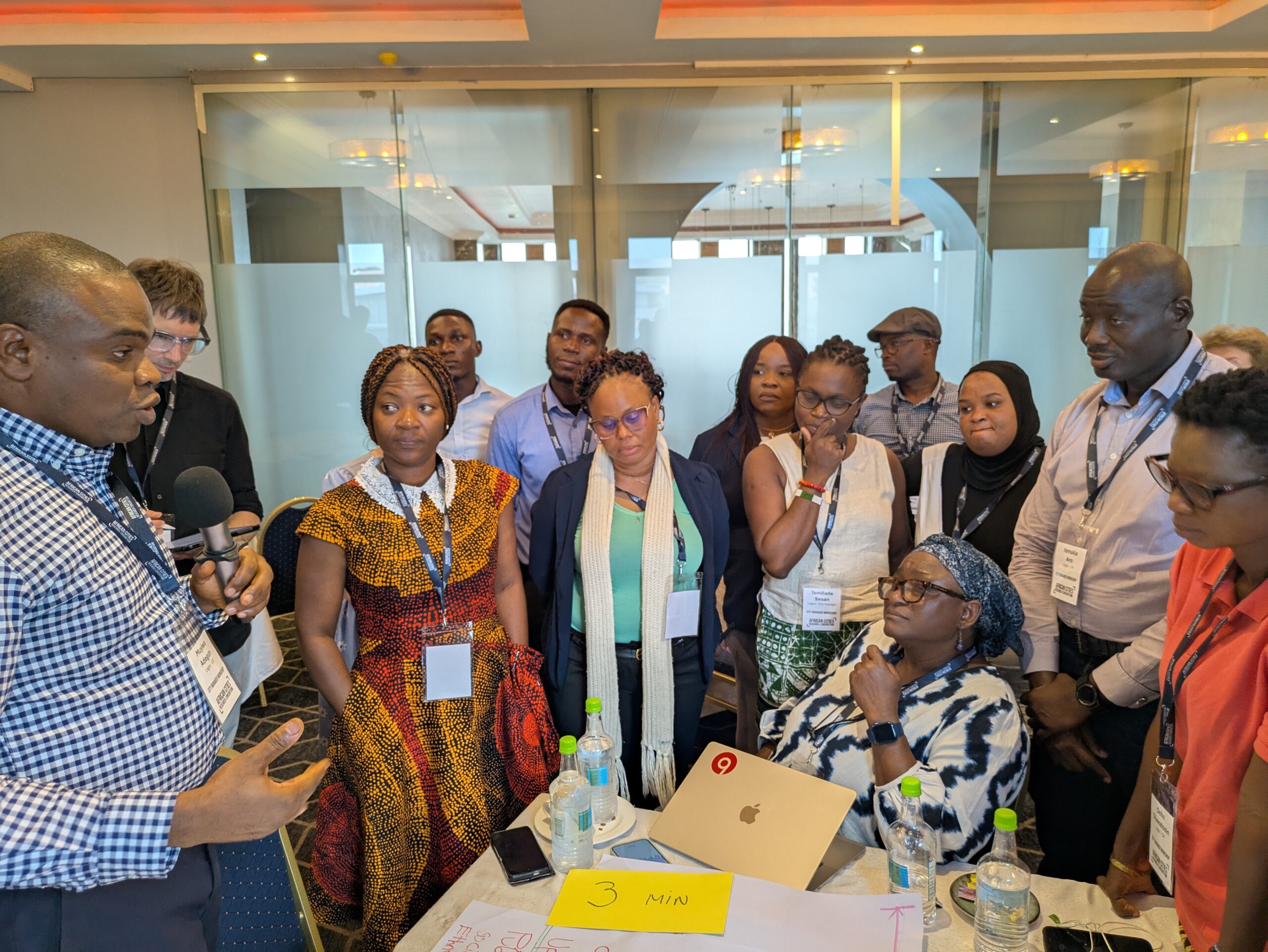
He bangs the drums
With the rain passed, we left the hotel behind to visit two of the action research projects that have recently got off the ground in the city.
First was a trip to Okerube, where an SDI group are pushing to provide clean water points and proper toilet facilities in the community. To ensure the project is sustainable, they’re setting up a social enterprise that will direct any profits back into maintaining and expanding the facilities.
The women led group have been working hard behind the scenes to bring the local Community Development Associations on side, as well as existing water vendors and local politicians. Indeed, we were greeted at the site by local councillor Hon. Olawale Hassan, as well as the traditional authority figures in the community, who confirmed that land would be allocated for the initiative.
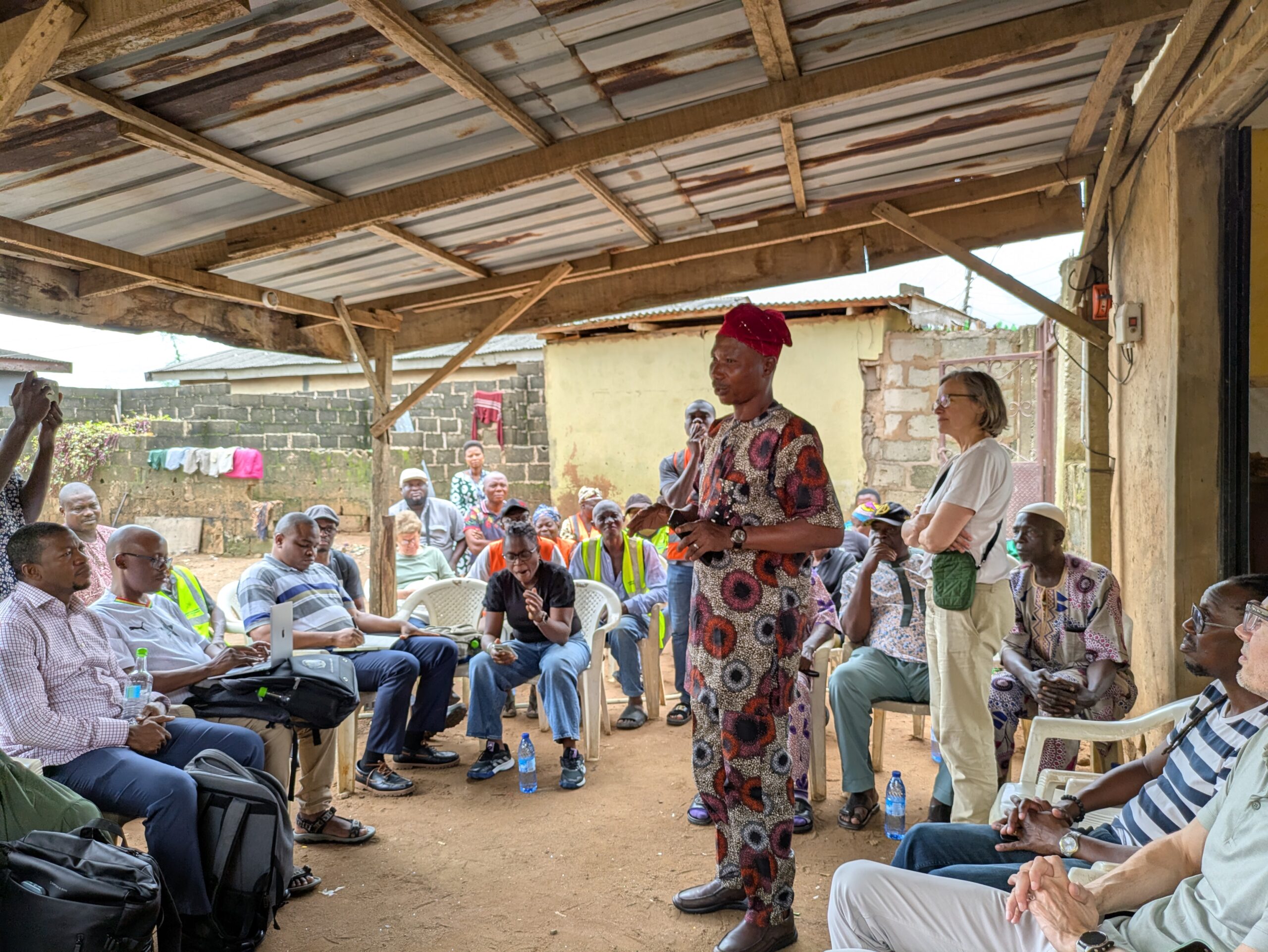
The next steps will be build, then test the running of the facilities.
As we left, we were also discovered a hidden talent of urban development researcher Prince Anokye from the Accra team, ending the meeting in a party atmosphere!
Next stop was to Ajegunle Ikorodu, a low-lying settlement that the team beset by flooding, which the community and research team hope to transform into a learning hub and model for climate-smart, inclusive urban resilience planning.
After the rain yesterday, large parts of the settlement were underwater, with stepping stones, boardwalks and wellington boots essential to get around. We heard from community members that flooding which used to occur every three years or so had turned into an annual event due to climate change.
Undertaking a Climate Hazard and Vulnerability Assessment will come next, after which potential low-cost, local solutions will be developed.
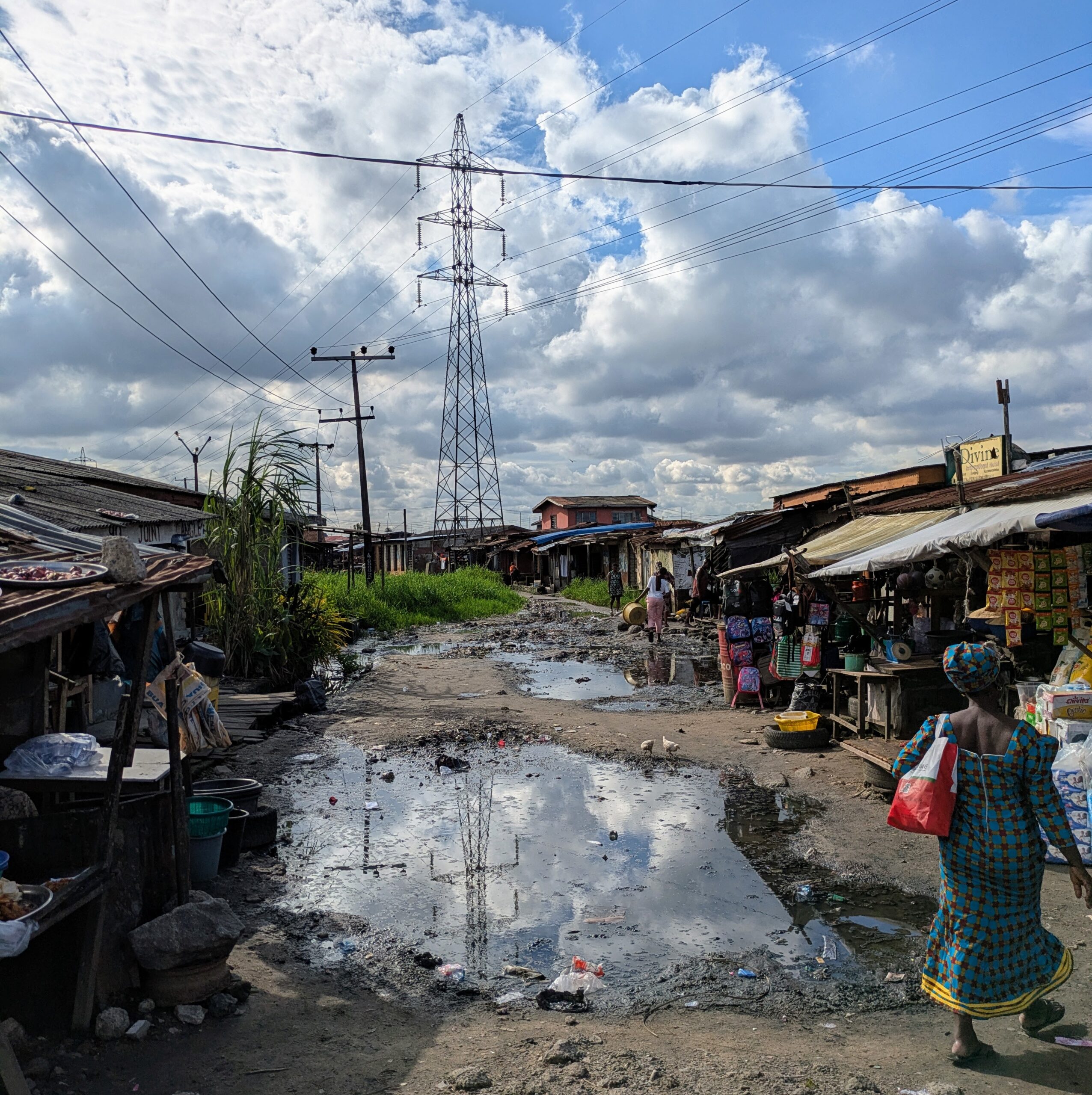
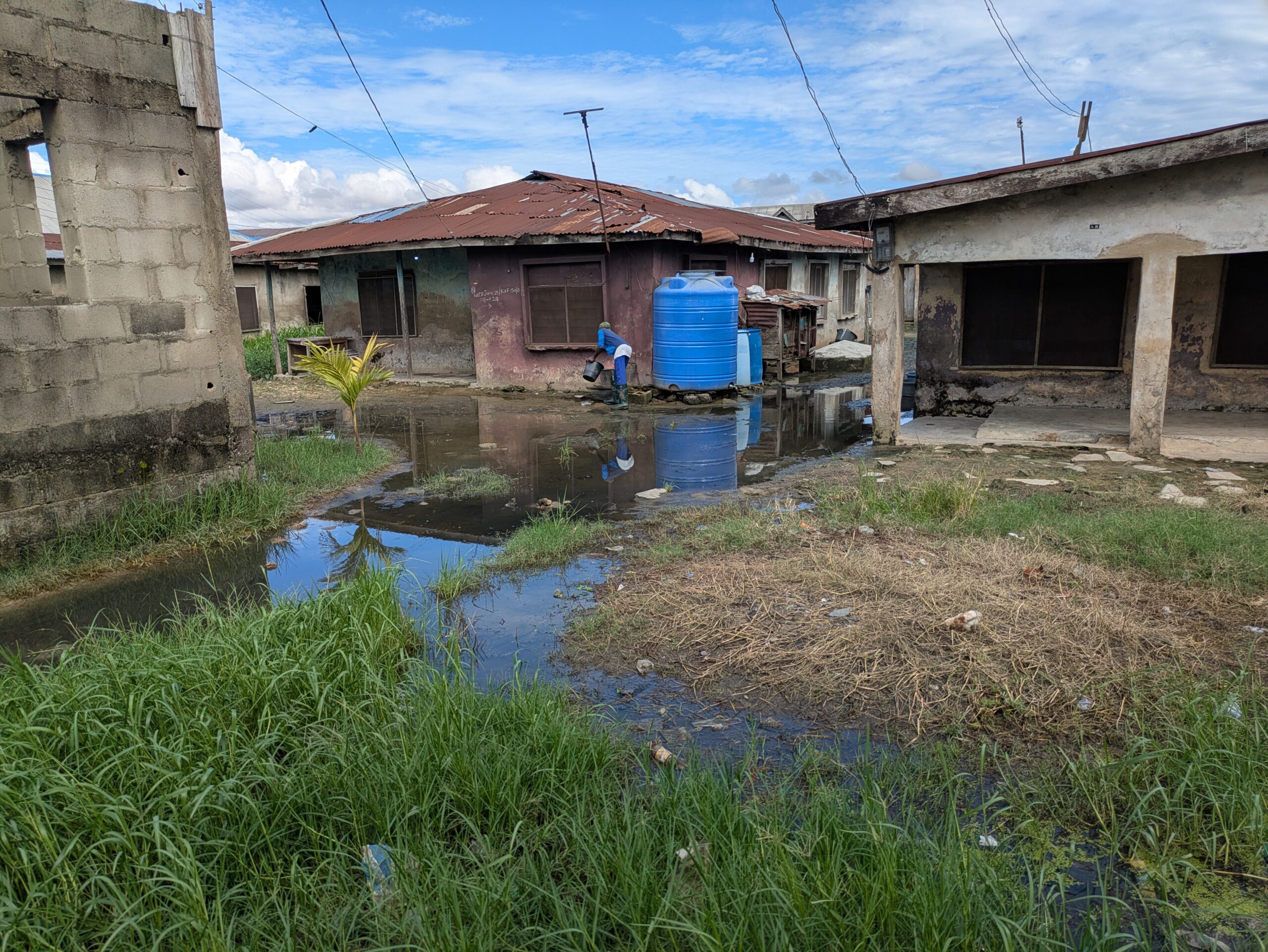
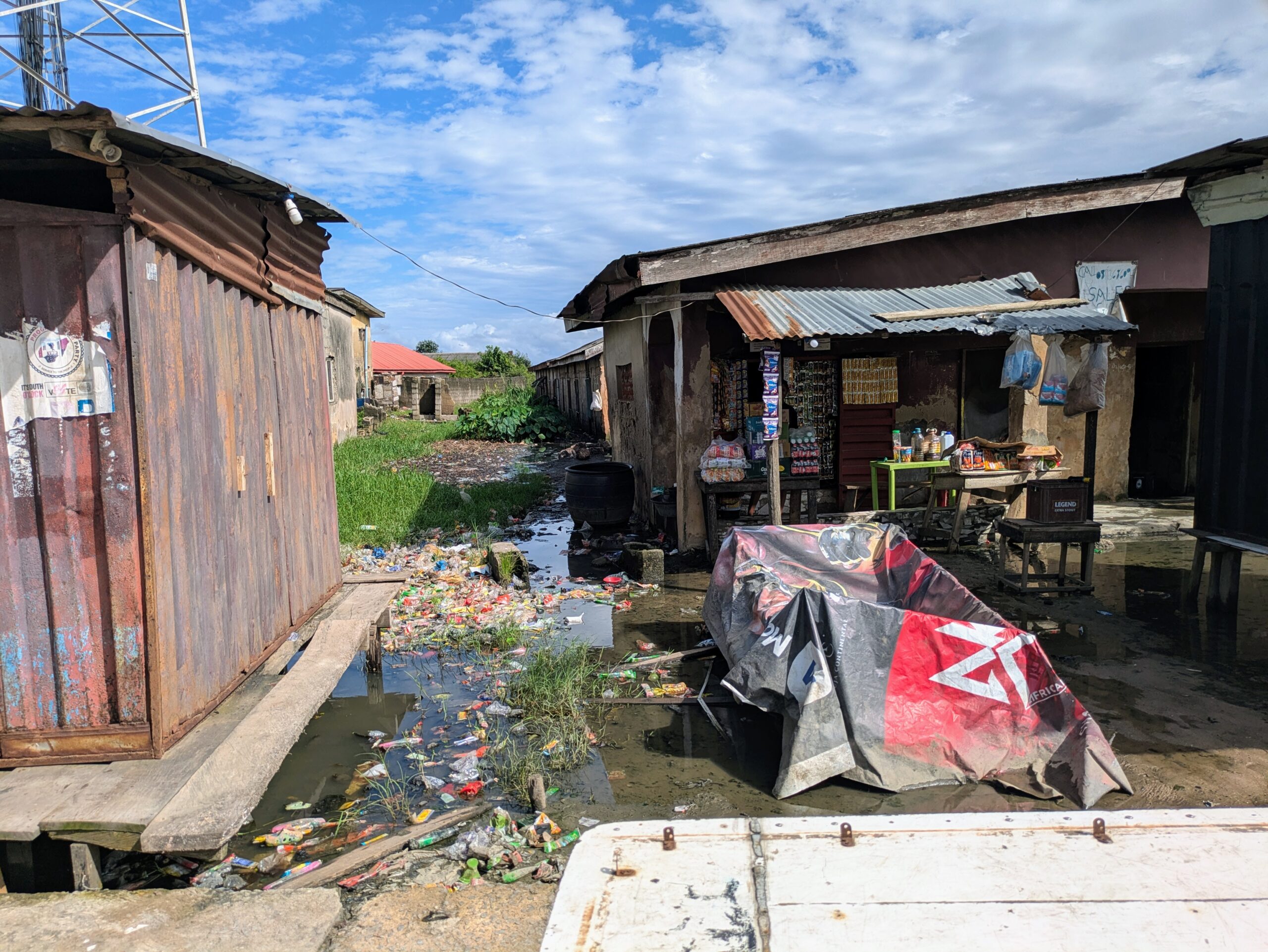
The end
Our final day in Lagos focused on reflecting on discussions, the ideas we’ve had and the insights we gained.
We talked though the similarities and differences between the ACRC cities – around politics, alignment, timing, negotiation with actors within the community, unintended consequences, the ongoing influence of colonial-era laws – and how we could best navigate this complexity.
Then it was onto developing concrete city plans to further improve the ways that reflection and learning was happening within teams. Deepening communication and finding better ways to share learning was a common theme.
With Tom Goodfellow‘s arrival at ACRC on the horizon, teams brainstormed ways to bring him up to speed with all the progress so far. People who’ve met Tom described him as ‘open, strategic, published, sharp, accommodating and connected’ … and hopefully we made him blush from afar!
The workshop finished off with an impromptu opportunity for the group to shower Diana Mitlin with praise and thanks. Although she’ll be with us for a while yet, it was a lovely opportunity for us to show our deep appreciation for her thoughtful, dynamic and empathetic leadership over many years.
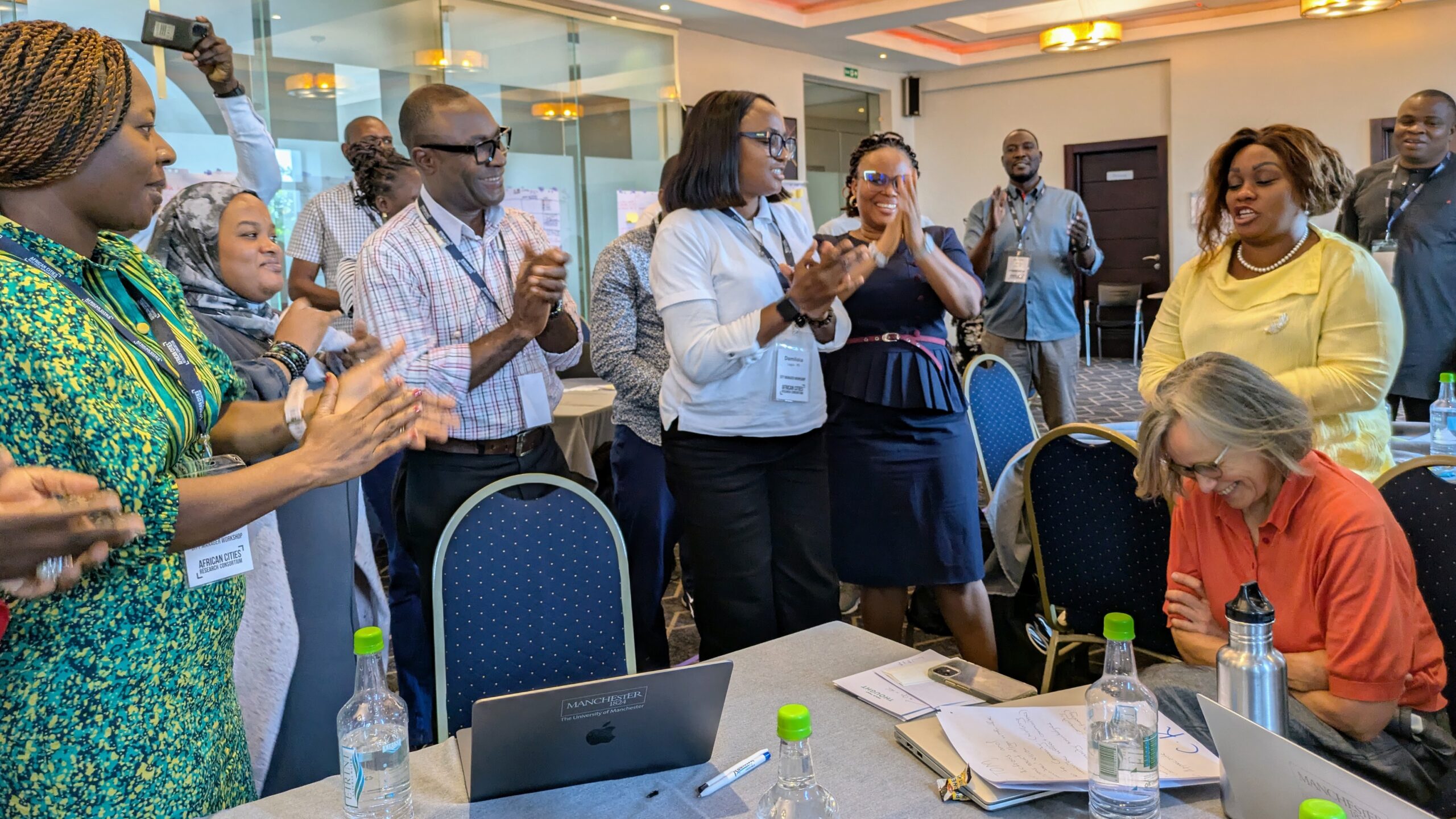
Photo credits: Chris Jordan
Note: This article presents the views of the authors featured and does not necessarily represent the views of the African Cities Research Consortium as a whole.
The African Cities blog is licensed under Creative Commons Attribution-NonCommercial-NoDerivatives 4.0 International (CC BY-NC-ND 4.0), which means you are welcome to repost this content as long as you provide full credit and a link to this original post.

